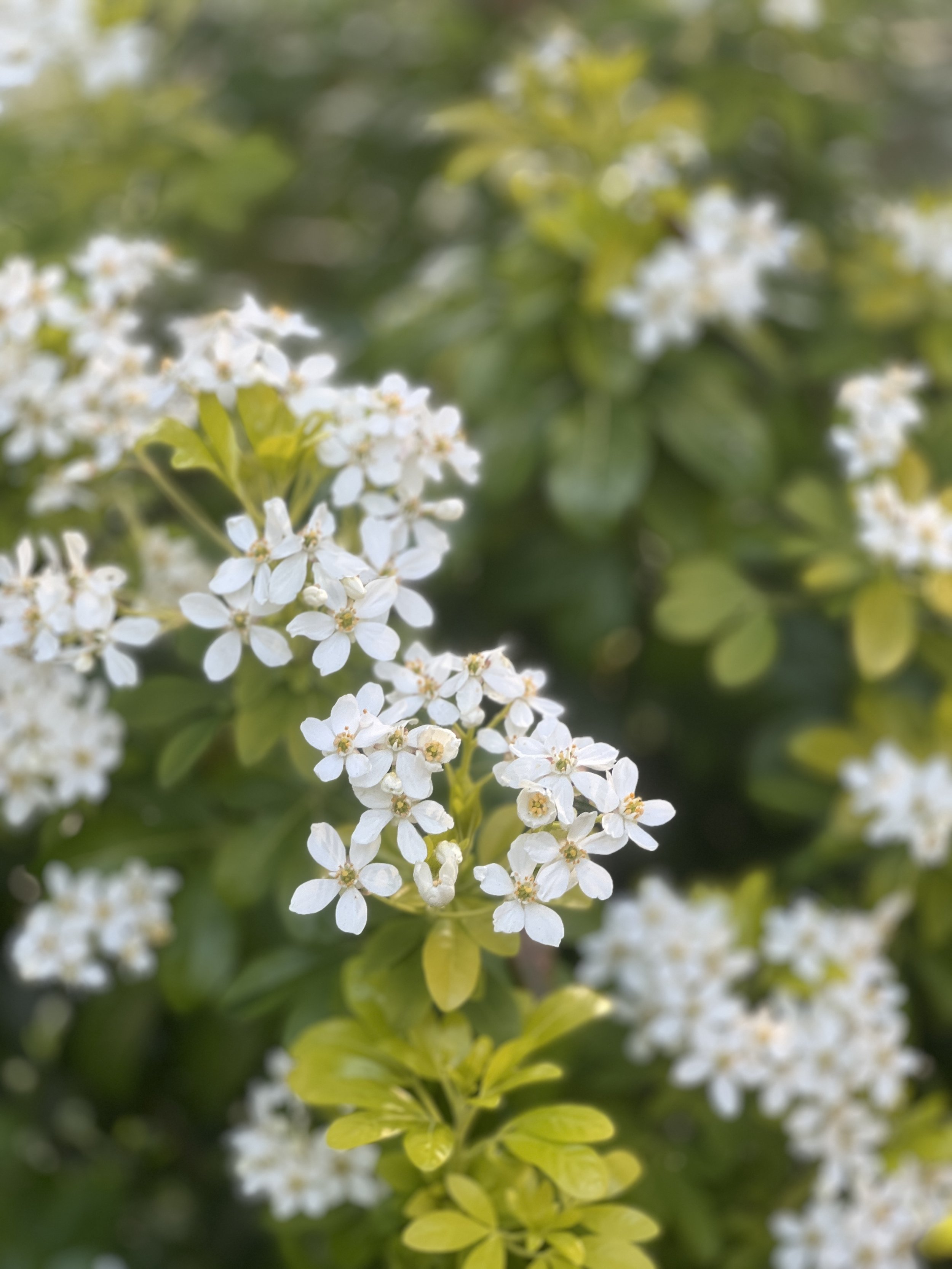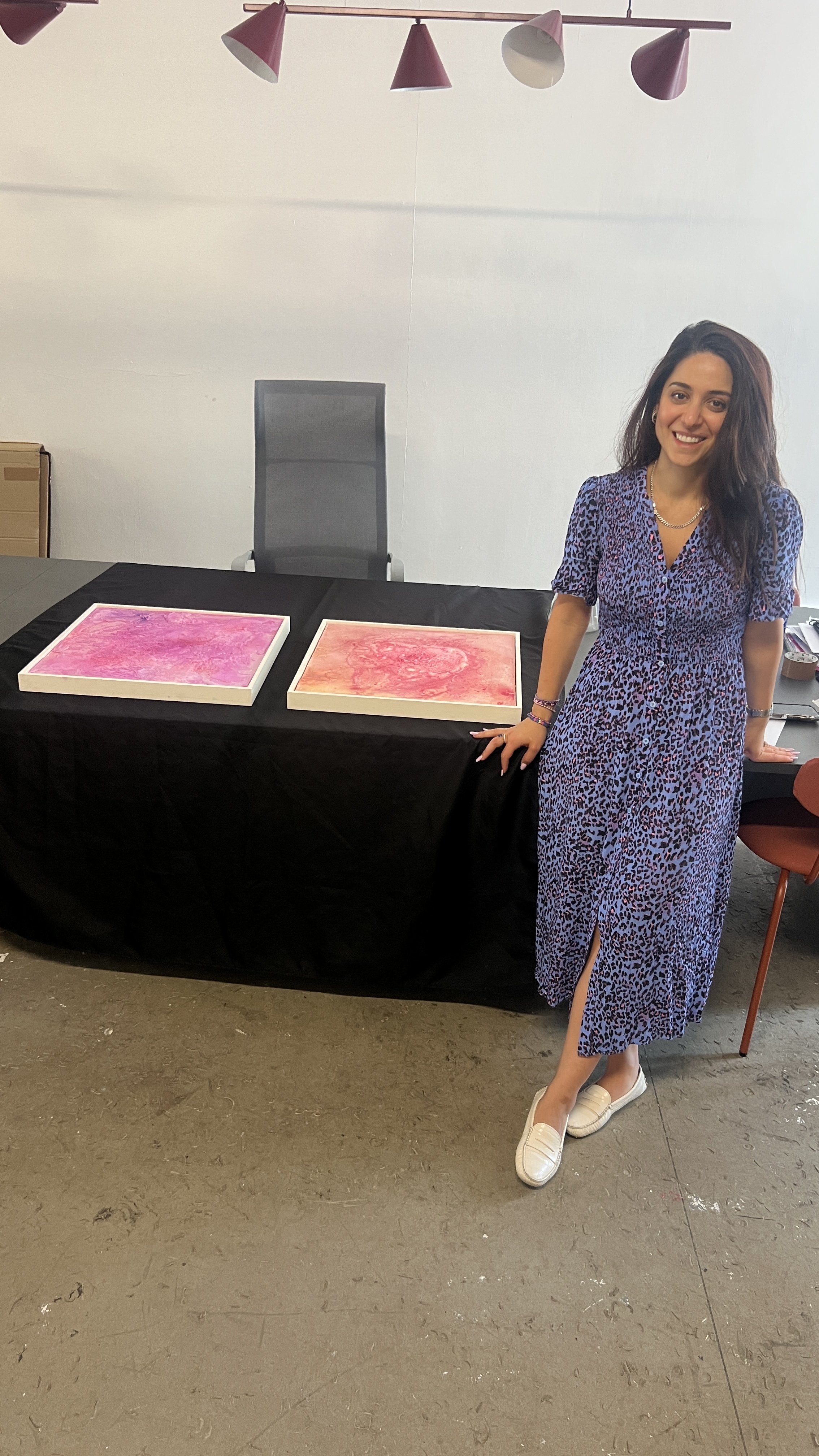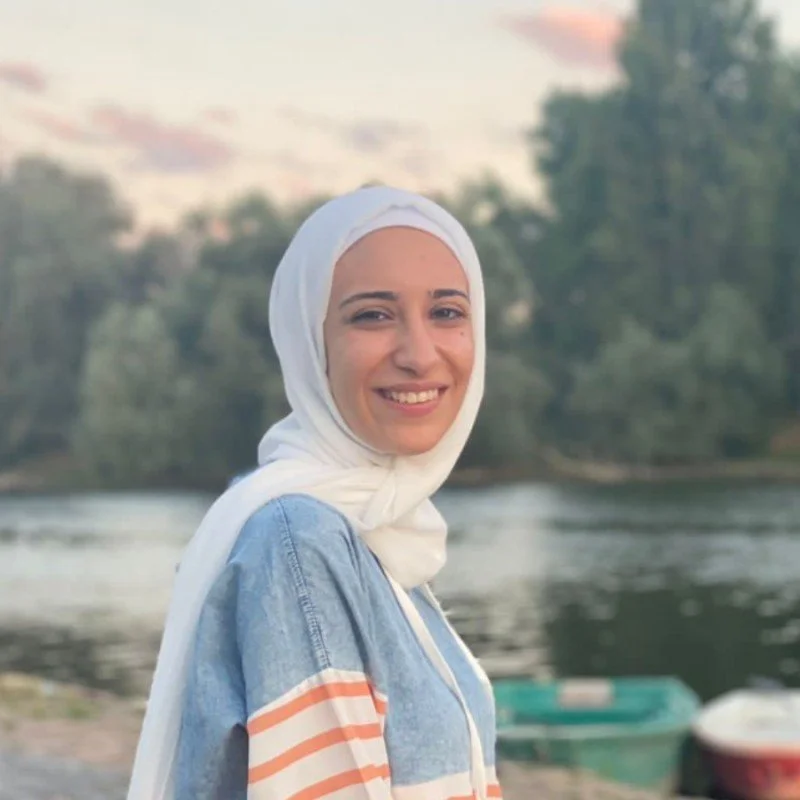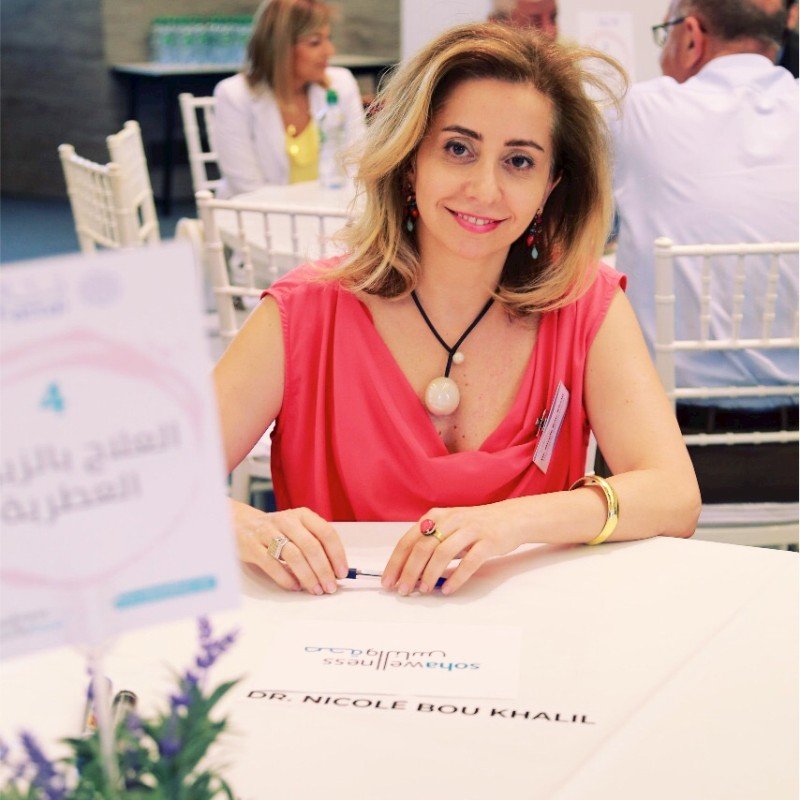Scents of Belonging: Three Lebanese Women Weaving Memory, Identity and Home Through Aroma
The link between scent, memory and identity runs deep. It’s something that comes up often in my own work, and it was especially present this week after a visit to Mabelle O’Rama’s new studio in London. I had the pleasure of meeting Mabelle in person after finding out I had won one of her Olfactive Art pieces, Mother Rose, as part of the Barnes Fragrance Fair charity draw.
I still remember how happy I was just to have received the beautifully dyed tote bag that came with the ticket, dyed with pomegranate juice and filled with thoughtful, scented surprises. I had been curious about Mabelle’s work for some time, and this piece in particular had caught my attention. So discovering that I had won it felt very special. Getting to visit her studio today, see her work up close and talk with her about our shared love of scent was an unexpected joy. It reminded me of the many talented Lebanese women I know, especially those working with scent in their own unique ways.
Here are three inspiring women whose work explores scent, memory and heritage in powerful and personal ways.
is a Lebanese-British perfumer and olfactive artist based in London. She began her scent journey during the 2020 pandemic, when smell became a kind of therapy, a way to ground and reconnect. Her work centres on scent as a tool for reflection and imagination, helping people revisit memories or dream up entirely new experiences.
Mabelle O’Rama: Scent as Memory and Storytelling
Drawing on her Phoenician heritage and a fascination with the cosmos, Mabelle creates perfumes that tell stories – some personal, others mythical. Her creations have been recognised internationally, including being finalists in the UK Fragrance Foundation Awards and receiving an Honourable Mention from the Institute of Art & Olfaction in Los Angeles.
Scented Artworks
Beyond perfume, Mabelle also creates scented artworks. These are abstract pieces made from wax that diffuse scent into the air, designed to be experienced as both visual and olfactive installations. Each one holds a personal narrative, evoking nostalgia and emotion without the need to be worn or handled. Some of her titles, like Home Is Where You Are, Would You Stay?, See How Wide the Mediterranean?, and Mother Rose, speak directly to themes of place, longing and identity.
Dana Al Shahbari:
Scent, Displacement and Resistance
Dana Al Shahbari is a PhD researcher at the University of Cambridge exploring early twentieth-century Arab intellectual history, particularly through the lens of memory and identity. At the Scent and Imagination symposium, she gave a moving talk about how scent functions as a form of resistance and cultural continuity in the context of exile and colonial loss.
She spoke about Dhikrā wa Damʿa (Memory and Tears), a text by writer May Ziadeh. Through Ziadeh’s references to smells like orange blossom in Jaffa, cedar in Beirut and jasmine in Damascus, Dana showed how scent can serve as a memory anchor for places no longer accessible. These olfactory details are not simply poetic devices but become acts of preservation. They recreate cities through smell when physical return is impossible.
Dana’s work makes a powerful case for scent as an intimate language of resistance. When landscapes are erased or identities are threatened, remembering through smell becomes a quiet but potent act of connection and survival. It offers something deeply valuable to those of us working with scent as a way to support emotional and cultural well-being.
Dr Nicole Bou Khalil
Preserving Aromatic Heritage Through Practice
Dr Nicole Bou Khalil is a pharmacist and certified clinical aromatherapist working in Lebanon. She is known for pioneering clinical aromatherapy in the country and is a strong advocate for the use of essential oils in healthcare. Her work includes offering consultations, creating personalised blends, and training healthcare professionals in integrative aromatherapy.
What sets Nicole’s work apart is her dedication to local aromatic traditions. She supports small distillers across Lebanon and works to preserve the country’s medicinal and aromatic plants. As the Lebanese ambassador for the Airmid Institute, she is currently developing a community-based aromatic path in North Lebanon that highlights native plants and their historical uses.
Her approach connects therapeutic care with cultural heritage. It roots modern aromatherapy in the land and its plants, while also offering practical health support to those who need it. Nicole’s work reminds us that scent can be both personal and collective, scientific and traditional.
Scent as a Link to Home
Ask yourself this: Which scents link you to home?
All three women work with scent in very different ways, yet their practices overlap in one important place – a deep connection to memory, identity and belonging. Whether through artistic expression, academic research or therapeutic care, they use scent to hold space for stories, for people and for places that matter.
Meeting Mabelle today brought this connection into focus for me again. It is easy to forget how powerful a simple smell can be. But every time we pause to notice it, we touch something older and deeper – something that reminds us who we are, where we came from, and where we feel at home.






